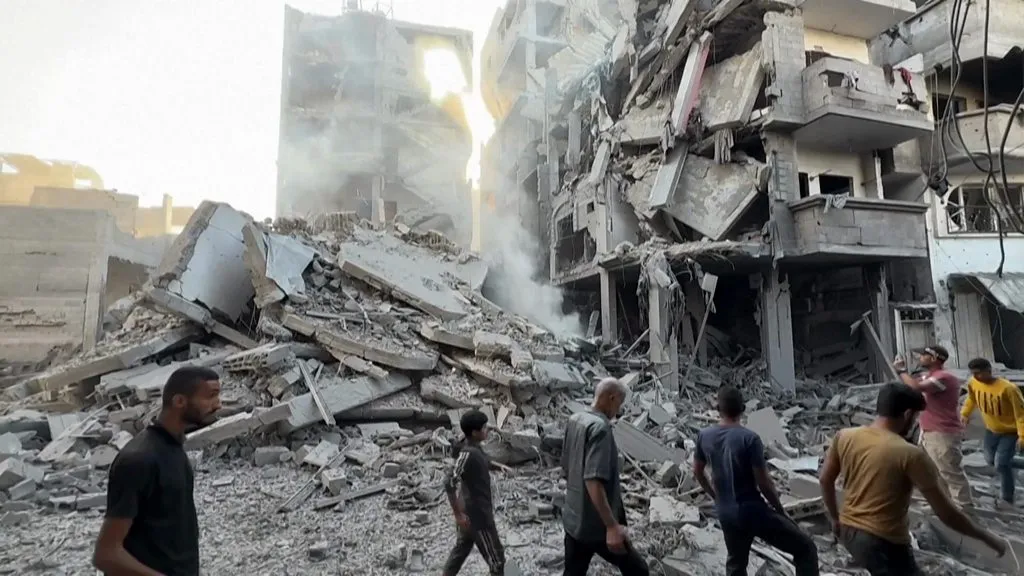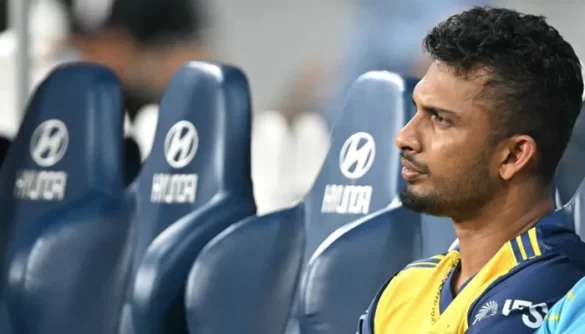GAZA: Israel said on Sunday that a ceasefire in Gaza had resumed after two of its soldiers were killed in an attack that triggered a wave of retaliatory airstrikes, leaving at least 26 Palestinians dead — the most serious test yet of the fragile truce brokered earlier this month.
US President Donald Trump, who helped mediate the ceasefire, confirmed that the agreement remained in place but distanced himself from the latest violence. “We think maybe the [Hamas] leadership isn’t involved in that,” he told reporters aboard Air Force One. Asked whether Israel’s strikes were justified, he replied: “I’d have to get back to you on that.”
An Israeli security official said humanitarian aid into Gaza was expected to resume on Monday following pressure from Washington, shortly after Israel halted shipments in response to what it called a “blatant” Hamas violation of the truce.
Airstrikes follow deadly attack on Israeli troops
According to the Israeli military, its forces launched strikes on Hamas positions across the enclave — targeting field commanders, gunmen, tunnels, and weapons depots — after militants fired an anti-tank missile and opened fire on troops, killing two soldiers.
Palestinian health authorities said the strikes killed at least 26 people, including one woman and a child. Residents said one of the attacks hit a former school in Nuseirat that was sheltering displaced families.
Israeli Prime Minister Benjamin Netanyahu said he had ordered the military to “respond forcefully” to Hamas’s violations of the ceasefire.
“We want to make sure it’s going to be very peaceful with Hamas,” Trump added. “Either way, it’s going to be handled toughly but properly.”
Trump’s envoy Steve Witkoff and son-in-law Jared Kushner were expected to arrive in Israel on Monday, according to U.S. and Israeli officials.
Hamas denies violating truce
Hamas’s armed wing said it remained committed to the ceasefire, was unaware of the clashes in Rafah, and had not been in contact with groups operating there since March.
US Vice President JD Vance did not address the Israeli strikes directly but told reporters that Hamas remains fragmented, with “about 40 different cells” still active.
“Some of those cells will probably honor the ceasefire. Many, as we saw today, will not,” Vance said. “Before Hamas can be fully disarmed, some Gulf Arab states will have to send forces to help maintain law and order on the ground.”
Israel Says Ceasefire Back on Track After Airstrikes Kill 26 in Gaza
Ceasefire under strain
The renewed fighting has heightened fears that the truce could collapse. In Gaza’s Nuseirat market, residents rushed to stock up on supplies, while families fled parts of Khan Younis after nearby strikes.
The violence echoed Israel’s confrontation with Hezbollah in southern Lebanon late last year, when a brief truce was tested by mutual accusations of ceasefire breaches — though that agreement eventually held.
The latest ceasefire, which took effect on October 10, halted two years of war between Israel and Hamas. But both sides have accused each other of repeated violations in recent days, underscoring the fragile nature of the peace.
Dispute over hostages and border reopening
Tensions have also flared over the fate of deceased hostages. Israel says Hamas is moving too slowly in returning their bodies. The group last week released all 20 living hostages and later handed over 12 of 28 deceased captives.
Hamas says the remaining bodies are buried under rubble and require special equipment to recover.
Israeli Defense Minister Israel Katz said Israel would physically mark the “yellow line” to which its troops have withdrawn under the ceasefire, warning that any attempt to cross it would be “met with fire.”
The Rafah crossing between Gaza and Egypt — a vital route for humanitarian aid — remains closed. Israel says its reopening will depend on Hamas fulfilling its obligations under the ceasefire.
Aid still falls short
The truce agreement includes a pledge to expand aid to Gaza, where the UN says hundreds of thousands face famine-level conditions. Although supplies through alternative crossings had increased in recent weeks, Sunday’s halt in deliveries has again deepened humanitarian concerns.
Aid is expected to resume Monday, but UN officials stress that the volume remains far below what is needed.
Key questions about Hamas’s disarmament, the governance of postwar Gaza, and the creation of an international stabilization force — as well as the long-term path toward a Palestinian state — remain unresolved.















